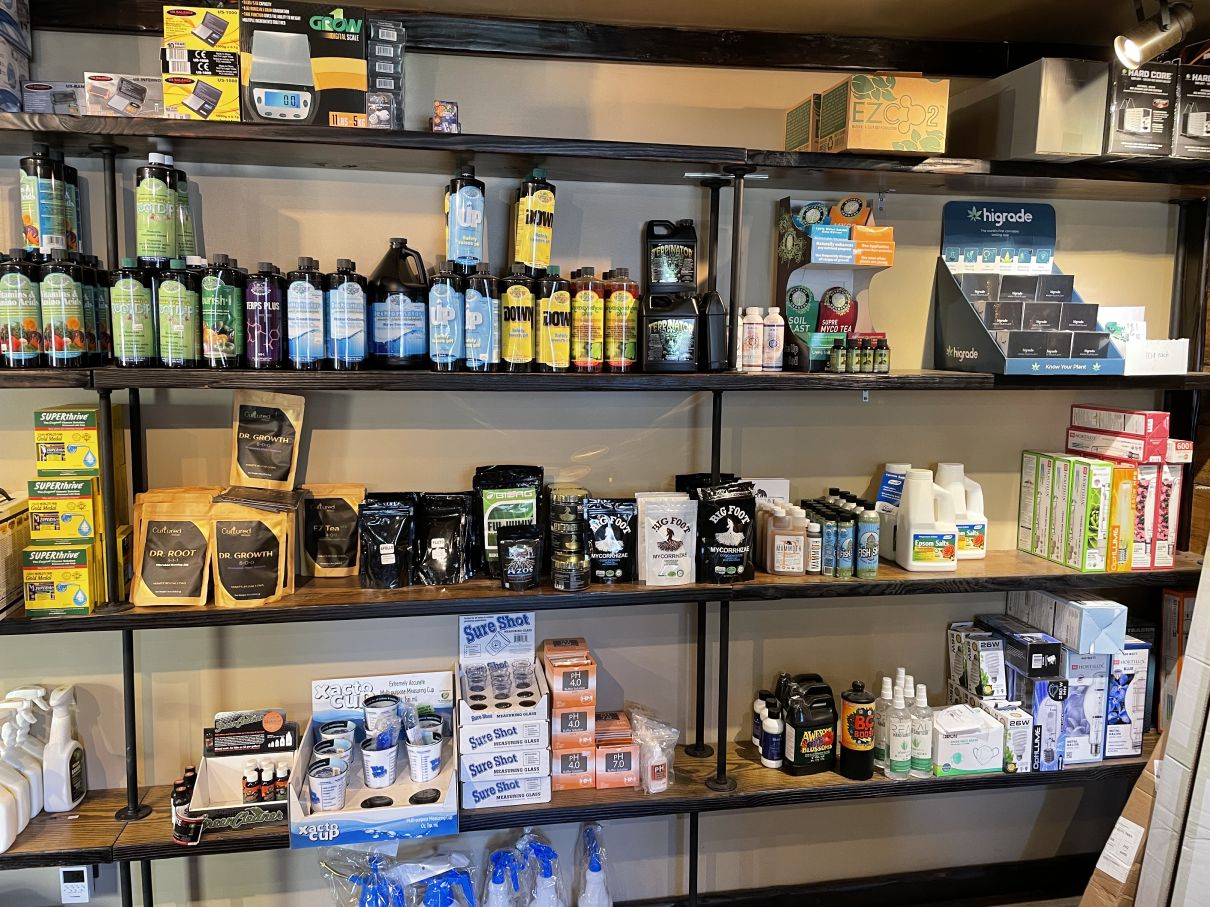Elevate Your Gardening Video Game: Introduction The Indoor Earthworm Growing Process
Wiki Article
Enhance Your Gardening Skills With Hydroponics: Checking Out Advantages
In the realm of horticulture, hydroponics has actually arised as a method that provides a series of advantages to both seasoned fanatics and newbies alike. The method of growing plants without soil might appear unusual at first, however its advantages are worth taking into consideration - The Indoor Earthworm. As we explore the world of hydroponic horticulture, we reveal a huge selection of benefits that not just improve plant growth however likewise provide unique possibilities for individuals seeking to boost their gardening skills. By checking out the advantages that this cutting-edge technique offers, one can get understandings into how hydroponics can reinvent the means we approach gardening.Benefits of Hydroponic Horticulture
Hydroponic gardening supplies numerous benefits as a result of its effective use sources and specific control over plant growth conditions. By providing plants with straight access to nutrients liquified in water, hydroponic systems get rid of the requirement for soil, decreasing water usage by up to 90% contrasted to typical soil-based farming. This reliable nutrient distribution technique also enables for faster plant growth rates and greater returns, making hydroponic gardening an appealing alternative for taking full advantage of limited space and sources.Additionally, the regulated atmosphere of hydroponic systems allows growers to maximize aspects such as moisture, temperature, and ph degrees, bring about healthier plants with minimized risk of conditions and insects. This specific control over expanding conditions not only advertises faster and much more regular plant growth but additionally permits year-round farming no matter exterior climate condition.
Faster Plant Growth With Hydroponics
Using advanced nutrient shipment systems, hydroponic gardening assists in accelerated plant development prices compared to typical soil-based cultivation approaches. In hydroponic systems, plants have direct accessibility to important nutrients liquified in water, allowing for ideal absorption without the need to expend power developing extensive root systems to browse for nutrients in the dirt. This reliable nutrient shipment device enables plants to redirect their power towards durable vegetative development and prolific fruiting or flowering.In addition, the controlled atmosphere in hydroponic arrangements guarantees that plants obtain the perfect problems for growth constantly. Variables such as temperature, moisture, light, and pH degrees can be meticulously kept track of and readjusted to develop the optimal expanding setting for every plant variety. By removing the variability existing in soil-based horticulture, hydroponic systems give plants with a steady and positive setting that maximizes their development capacity.

Water Conservation Conveniences
Hydroponic gardening uses up to 90% much less water compared to conventional soil-based gardening techniques. In hydroponics, the nutrient option is provided straight to the plant roots, guaranteeing optimum water uptake and lowering water loss.Moreover, hydroponic systems permit precise control over water usage, with the ability to readjust and keep an eye on nutrient degrees based on plant needs. This targeted approach prevents overwatering, a common concern in soil-based gardening, further adding to water preservation efforts. By maximizing water efficiency and lessening waste, hydroponic gardening offers itself as a sustainable and environmentally friendly alternative for people aiming to lower their water usage in gardening practices.
Year-Round Plant Farming

By controlling elements such as temperature, nutrient, and light levels, hydroponic systems allow plants to flourish regardless of external climate condition. This consistent setting enables continual plant development and harvest, supplying a trustworthy supply of fresh fruit and vegetables also in the dead of winter season.
In addition, the capability to get more cultivate plants year-round in hydroponic systems opens chances for growers to trying out a larger variety of site here crops, increase their expanding seasons, and rise overall performance. This versatility and dependability make year-round plant farming in hydroponics an important device for both enthusiasts and commercial farmers wanting to optimize their gardening initiatives.
Enhancing Gardening Abilities Through Hydroponics
Establishing effectiveness in hydroponics can empower garden enthusiasts with a deeper understanding of plant farming techniques and boost their total gardening skills. Hydroponic systems provide a controlled setting where gardeners can carefully keep track of and readjust variables such as nutrient levels, pH balance, and illumination problems to maximize plant development. By grasping these components, garden enthusiasts can fine-tune their abilities and expertise, resulting in more successful harvests and much healthier plants.Moreover, hydroponic gardening difficulties traditional notions of soil-based growing, motivating garden enthusiasts to assume outside the box and explore ingenious growing methods. This testing can promote imagination and analytical skills, as gardeners discover to adapt and troubleshoot issues unique to hydroponic systems. Additionally, the performance of hydroponic arrangements, such as vertical yards or nutrient movie strategies, can teach garden enthusiasts just how to optimize area and resources efficiently.
Final Thought
In final thought, hydroponic gardening offers numerous advantages such as faster plant development, water preservation, and year-round cultivation. By discovering the benefits of hydroponics, individuals can boost their horticulture skills and achieve successful plant development. Take into consideration integrating hydroponic techniques into your horticulture methods to take full advantage of effectiveness and productivity in your yard.As we dig into the globe of hydroponic horticulture, we uncover a wide variety of advantages that not just enhance plant development however also provide one-of-a-kind chances for individuals looking to boost their gardening skills.Using advanced nutrient distribution systems, hydroponic horticulture assists in accelerated this contact form plant development rates contrasted to standard soil-based cultivation approaches. By eliminating the irregularity present in soil-based horticulture, hydroponic systems offer plants with a favorable and steady setting that optimizes their development capacity.
Enhancing the sustainability and performance of gardening techniques, year-round plant growing in hydroponic systems supplies a consistent and trusted technique for growing a variety of plants no matter of seasonal limitations. The Indoor Earthworm.In final thought, hydroponic gardening offers many advantages such as faster plant development, water preservation, and year-round cultivation
Report this wiki page